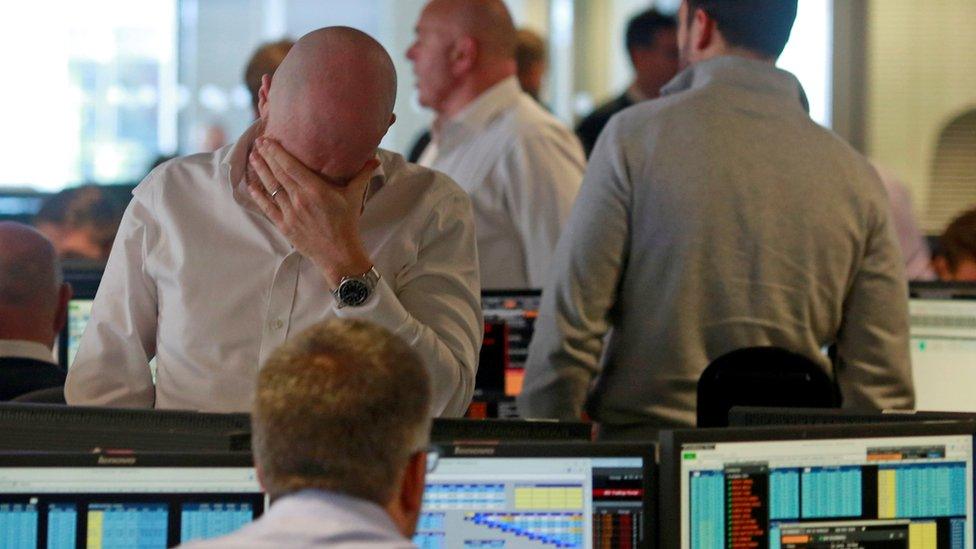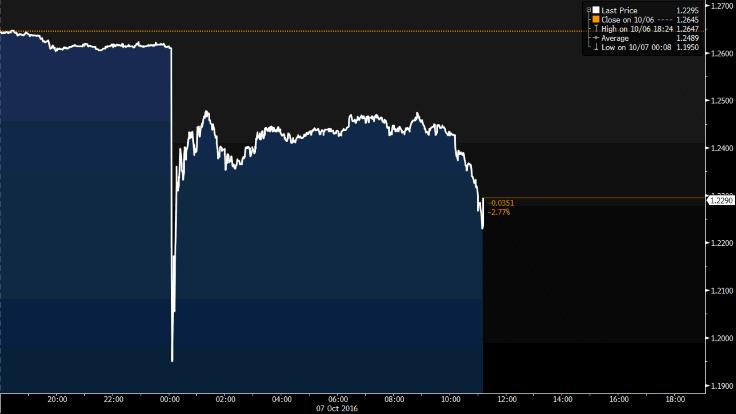No single factor behind sterling flash crash, BIS says
- Published
October's flash crash in sterling was caused by several factors - including the time of day - according to a report by the international banking body, the Bank for International Settlements.
In the early hours of 7 October, the pound fell by about 9% against the dollar - an abnormally large swing in two such widely traded currencies - before then largely recovering.
The BIS says there were no significant losses suffered by traders.
But it says lessons should be learned.
The BIS report, which drew on detailed analysis by the Bank of England, says the conditions for such a move were created by the lack of sterling dealers in the market at the time of day.
The trade took place in Asian markets, at a time of day when key sterling counter traders in London and other important Western markets are not operating.
Vulnerable
The BIS does not point to an actual event or piece of news for causing the crash, but reports at the time suggested a headline in the Financial Times quoting French president Francois Hollande pressing for a "hard Brexit", an outcome commonly thought to preclude a smooth transition, prompted some selling.
The flurry of trading, whatever the cause, included automatic deals.
Some of these were stop-loss orders - designed to simply sell a holding that has reached a price below which it will lose money for the investor - and algorithmic trades, which can be triggered by a host of factors, including, it is thought, certain types of news announcements.
The BIS said: "The report concludes that the time of day played a significant role in making the sterling foreign exchange market more vulnerable to imbalances in order flow.

"Significant demand to sell sterling to hedge options positions and the execution of stop-loss orders as the currency depreciated also had an impact. The presence of staff with less expertise in the suitability of particular algorithms for the market conditions appears to have amplified the movement."
When the sudden fall happened, one theory was that it was a mistake, a so-called "fat finger" trade.
Others blamed the automated nature of the market.
The BIS report says these sudden moves appear to be happening more frequently as the market becomes faster and more automated, and market participants should consider how to ride these out.
It says there are direct lessons from the flash event.
Its Foreign Exchange Working Group is developing the new code of conduct for currency markets, the FX Global Code.
It wants market participants to consider the disruptive consequences of their trading activity, governance around algorithmic execution of trades, and how market participants might best determine the low (or high) point of pricing in a flash event.
"Since such events have the potential to undermine confidence in financial markets and impact the real economy, it is important for policymakers to continue to develop a deeper understanding of modern market structure and its associated vulnerabilities," said Guy Debelle, chairman of the BIS's Markets Committee.
- Published7 October 2016
